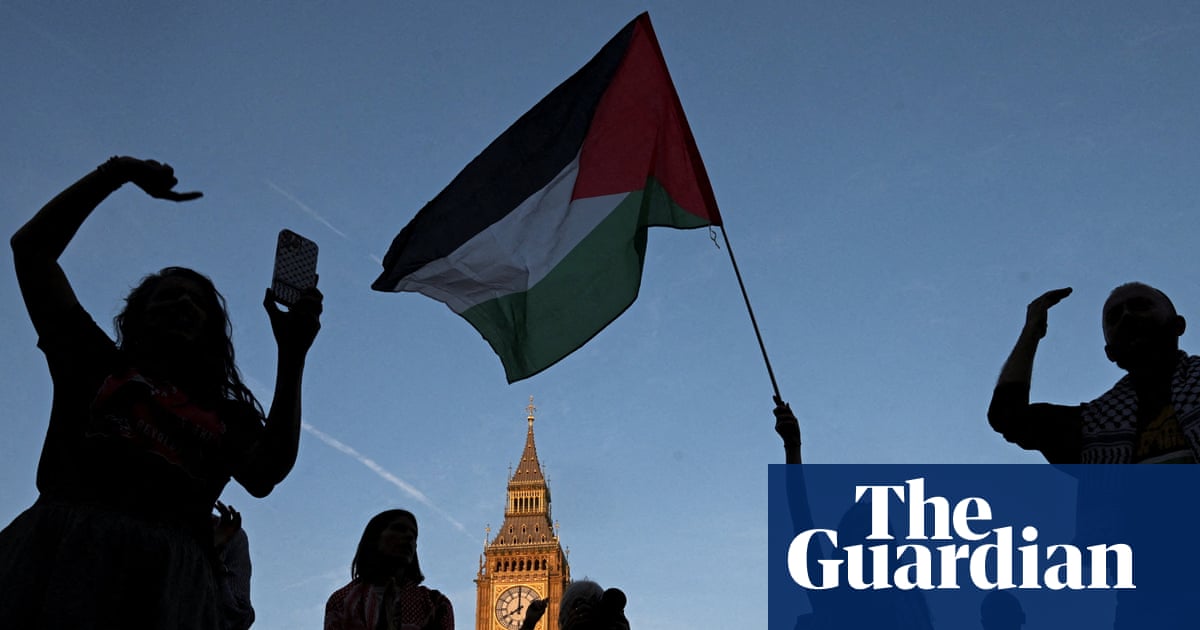A former cabinet minister has said the UK government is “digging itself into a hole” over Palestine Action and fellow Labour peers and MPs were regretting voting to ban the group.
The warning by Peter Hain, who opposed proscription, came as a Labour backbencher who supported it said the issue would arise again when parliament returned in September.
Lord Hain, who was a leader of the anti-apartheid movement and the Anti-Nazi League in Britain during the 1970s and 1980s, was lacerating about the response to recent protests in support of Palestine Action.
“It will end in tears for the government,” he said. “We are seeing retired magistrates, retired and serving doctors and all sorts of people being arrested and now effectively being equated with terrorists such as al-Qaida, which is absolutely wrong.”
He said if a legal challenge to the proscription was successful, it “would be a mercy to all concerned, including the government”.
The peer was one of three Labour members of the Lords to vote against banning the group in July. Lord John Hendy, the barrister and employment law expert, and Frances O’Grady, the former TUC general secretary, also opposed the move, as did 10 Labour MPs.
“It’s going to get worse [for the government] because I don’t see people from that ‘middle Britain’ background who have joined these protests in such large numbers to suddenly decide that all is OK,” he said.
“In fact, I think more are going to come out and face arrest because the approach to Palestine Action is contrary to every form of peaceful protest in British history, whether that’s the chartists and suffragettes or anti-apartheid and anti-fascist protesters.”
The government has come under pressure to justify the detention of 532 people arrested over the weekend under the Terrorism Act – half of whom were 60 or older – on suspicion of showing support for Palestine Action.
He cited his experience as a secretary of state for Northern Ireland and cabinet minister to challenge the equation of the group with terrorists.
“There is a battery of other crimes that could be applied to Palestine Action but terrorism is not one of them, while you also devalue the charge of terrorism by equating it with the protests we have seen,” Hain said.
“I … worked with the intelligence services and others to stop dissident IRA groups from killing. I have signed warrants to stop other real terrorists, Islamist terrorists, bombing London. So I am not soft on terrorism. But I am a strong believer that you have to know what it looks like.”
Hain said that a lot of Labour MPs and peers were now having “second thoughts” about proscribing Palestine Action.
On Monday, a Downing Street spokesperson said the group was “a violent organisation that has committed violence, significant injury, extensive criminal damage”.
The home secretary, Yvette Cooper, told the BBC that Palestine Action “is not a non-violent organisation” and claimed that court restrictions meant people “don’t know the full nature of this organisation”.
Labour backbencher Stella Creasy said in a video posted on Instagram on Tuesday that MPs who had voted for proscription “need to be clearer about the basis for that”. But she said this was more complicated than it should be because the evidence presented to MPs about the alleged use of violence was part and parcel of court cases and could not be used in parliamentary debates.
“The presence of violence in our politics can’t be ignored and it needs legislation that can balance the danger this presents with defending debate for all concerned so clear we need to work on this further when parliament returns,” she said.
Creasy also called for more “consistency” about tackling violence and intimidation, which she said was on the rise and should cause the government to consider extending bans to some far-right groups seeking to exploit protests against hotels housing asylum seekers.
